Definition
Hypertension, also known as high blood pressure, is when the pressure of the blood being pumped through your arteries is higher than it should be. Each time your heart beats, blood is pumped through your arteries and veins, the blood vessels of your circulatory system. Arterial blood pressure is created by the force exerted by the blood against the artery walls, as they carry blood around your body.
High blood pressure or hypertension has been called the “silent killer”, because it often has no warning signs or symptoms, and many people do not even know they have it. Over time, the constant pressure overload causes accumulating damage that eventually becomes more than your circulatory system can handle, often leading to serious health problems.
History
The modern history of hypertension begins with the understanding of the cardiovascular system based on the work of physician William Harvey (1578–1657), who described the circulation of blood in his book “De motu cordis”. The English clergyman Stephen Hales made the first published measurement of blood pressure in 1733. Descriptions of hypertension as a disease came among others from Thomas Young in 1808 and especially Richard Bright in 1836. The first report of elevated blood pressure in a person without evidence of kidney disease was made by Frederick Akbar Mahomed (1849–1884). The concept of hypertensive disease as a generalized circulatory disease was taken up by Sir Clifford Allbutt, who termed the condition “hyperpiesia”. However hypertension as a medical entity really came into being in 1896 with the invention of the cuff-based sphygmomanometer by Scipione Riva-Rocci in 1896. This allowed blood pressure to be measured in the clinic. In 1905, Nikolai Korotkoff improved the technique by describing the Korotkoff sounds that are heard when the artery is ausculated with a stethoscope while the sphygmomanometer cuff is deflated.
Epidemiology
Hypertension is a worldwide epidemic; accordingly, its epidemiology has been well studied. Data from National Health and Nutrition Examination Survey (NHANES) spanning 2011-2014 in the United States found that in the population aged 20 years or older, an estimated 86 million adults had hypertension, with a prevalence of 34%. Hypertension affects US men and women nearly equally, affecting an estimated 40.8 million men and 44.9 million women.
Globally, an estimated 26% of the world’s population (972 million people) has hypertension, and the prevalence is expected to increase to 29% by 2025, driven largely by increases in economically developing nations. The high prevelance of hypertension exacts a tremendous public health burden. As a primary contributor to heart disease and stroke, the first and third leading causes of death worldwide, respectively, high blood pressure was the top modifiable risk factor for disability adjusted life-years lost worldwide in 2013.
Between 2006 and 2011, there was a 25% increase in the number of people visiting US emergency rooms for essential hypertension, according to an analysis of data from the Nationwide Emergency Department Sample in 2014. The reason for the increase, however, remained uncertain. The rate of emergency department visits also increased significantly, according to the study, rising from 190.1 visits per 100,000 population in 2006 to 238.5 visits per 100,000 population in 2011. Over the same period, however, admission rates decreased, from 10.47% in 2006 to 8.85% in 2011.
Emergency department visits for hypertension with complications and secondary hypertension also rose, from 71.2 per 100,000 population in 2006 to 84.7 per 100,000 population in 2011, while again, admission rates fell, dropping from 77.79% in 2006 to 68.75% in 2011. The in-hospital mortality rate for admitted patients dropped as well, from 1.95% in 2006 to 1.25% in 2011.
Types
Primary hypertension:
Primary Hypertension also known as Essential hypertension/ Idiopathic hypertension is most common and complex type of hypertension and is found in more than 90 % of the hypertensive population. By definition it has no direct causes but is a result of sedentary lifestyle and obesity.
Secondary hypertension:
Secondary Hypertension by definition is a result of identifiable causes. It is very important to detect Secondary Hypertension as the treatment for Secondary hypertension is associated with treating the cause. Secondary Hypertension results from the interplay of several pathophysiological mechanisms regulating plasma volume, peripheral vascular resistance and cardiac output, all of which may be increased.
Other types of hypertension
Malignant Hypertension – High blood pressure is usually called the “Silent Killer”. It is called this because it does not always have obvious signs or symptoms. Unlike moderate high blood pressure, malignant hypertension has very noticeable symptoms such as.
- Changes in vision including blurry vision.
- Chest Pain.
- Anxiety
- Nausea or vomiting.
- Numbness or weakness in the arms or legs.
- Shortness of breath.
- Headaches
- Reduced urine output.
Resistant Hypertension – So you have mad lifestyle changes. You’re taking a diuretic and at least 2 hypertensive medications but your blood pressure is not budging. This is called resistant hypertension. Simply put, it means your high blood pressure is hard to treat and may also have an underlying secondary cause. Resistant hypertension may have one or more underlying medical conditions. In addition to treating resistant hypertension with medications, doctors usually investigate secondary cause such as:
- Abnormalities in the hormones that balance and control blood pressure.
- The accumulation of artery-clogging plaque in blood vessels that nourish kidneys, a condition known as renal artery stenosis.
- Sleep issues such as breath-holding type of snoring known as obstructive sleep apnea.
- Obesity or a heavy intake of alcohol or other substances that interfere with blood pressure.
Pulmonary Hypertension – Some forms of pulmonary hypertension are serious conditions that progressively become worse and are sometimes fatal. Although some forms of pulmonary hypertension are not curable, treatment can help lessen symptoms and improve the quality of life. There are several types of pulmonary hypertension and the treatment plan depends on the type. Symptoms can include but are not limited to:
- Shortness of breath during routine activity, such as climbing two flights of stairs.
- Fatigue
- Chest pain.
- A racing heartbeat.
- Pain in the upper right quadrant of the abdomen near the liver.
- Decreased appetite.
Pseudo-Hypertension – This type of blood pressure usually appears in senior citizens. Non-compressibility, and Osler’s sign of pseudo hypertension is a falsely elevated blood pressure reading obtained by the blood pressure machine. This is due to calcification of the blood vessels which cannot be compressed.
Risk factors of Hypertension
Although for most people there is no identifiable cause of hypertension, there are known risk factors that increase the likelihood that you will become hypertensive. Several of these are things that you can’t do anything about, including:
Genetics – having family members with hypertension increases the likelihood that you will too.
Race – high blood pressure is more common in people with dark skin than in people with pale skin.
Age – your blood vessels become more rigid as you age, preventing them from opening as effectively as when you were younger, which increases peripheral resistance.
Other risk factors are known as modifiable risk factors, because many people can reduce their blood pressure by changing their diet and lifestyle. The most common risk factors include being overweight and inactive, eating a high salt diet, and smoking.
Causes
In about 1 in 20 cases, high blood pressure occurs as the result of an underlying condition, medication or drug.
- Conditions that can cause high blood pressure include:
- kidney disease
- Diabetes
- Long-term kidney infections
- Obstructive sleep apnoea – a condition in which the walls of the throat relax and narrow during sleep, interrupting normal breathing
- Glomerulonephritis – damage to the tiny filters inside the kidneys
- Narrowing of the arteries supplying the kidneys
- Hormone problems – such as an underactive thyroid, an overactive thyroid, Cushing’s syndrome, acromegaly, increased levels of the hormone aldosterone (hyperaldosteronism) and phaeochromocytoma
- Lupus – a condition in which the immune system attacks parts of the body such as the skin, joints and organs
- Scleroderma – a condition that causes thickened skin, and sometimes problems with organs and blood vessels

Medicines and drugs that can increase your blood pressure include:
- The combined oral contraceptive pill
- Steroid medication
- Non-steroidal anti-inflammatory drugs (NSAIDs) – such as ibuprofen and naproxen
- Some over-the-counter cough and cold remedies
- Some herbal remedies – particularly those containing liquorice
- Some recreational drugs – such as cocaine and amphetamines
- Some selective serotonin-noradrenaline reuptake inhibitor (SSNRI) antidepressants – such as venlafaxine
In these cases, your blood pressure may return to normal once you stop taking the medicine or drug.
Symptoms of Hypertension
A person with hypertension may not notice any symptoms, and it is often called the “silent killer.” While undetected, it can cause damage to the cardiovascular system and internal organs, such as the kidneys.
Long-term hypertension can cause complications through atherosclerosis, where the formation of plaque results in the narrowing of blood vessels. This makes hypertension worse, as the heart must pump harder to deliver blood to the body.
Hypertension-related atherosclerosis can lead to:
- Heart failure and heart attacks
- An aneurysm, or an abnormal bulge in the wall of an artery that can burst, causing severe bleeding and, in some cases, death
- Kidney failure
- Stroke
- Amputation
- Hypertensive retinopathies in the eye, which can lead to blindness
Regular blood pressure testing can help people avoid the more severe complications.
Diagnosis of Hypertension
Diagnosing hypertension: Blood pressure is usually measured using a pressure cuff or an electronic device placed on your upper arm. A blood pressure reading is written as two numbers, representing the maximum pressure in the circulatory system when the heart pumps blood out (systolic pressure), and the minimum pressure when the heart refills (diastolic pressure). Blood pressure is measured in millimeters of mercury (mm Hg). Normal resting blood pressure in an adult is approximately 120 / 80 mm Hg. However, your blood pressure can fluctuate from minute to minute, and readings are generally higher in the afternoon and lower at night.
Doctors often classify blood pressure into four categories:
- Normal blood pressure – below 120 / 80 mm Hg.
- Prehypertension – 120-139 / 80-89 mm Hg.
- Stage 1 hypertension – 140-159 / 90-99 mm Hg.
- Stage 2 hypertension – 160 / 100 mm Hg or higher.
Both numbers in a blood pressure reading are important, and an increase in either number (systolic or diastolic pressure) indicates you are hypertensive. It is worth noting that a blood pressure below 90 / 60 mm Hg is considered outside the normal range, and is known as hypotension, or low blood pressure.

Blood pressure chart
Treatment and medications
Changing your lifestyle can go a long way toward controlling high blood pressure. Your doctor may recommend you eat a healthy diet with less salt, exercise regularly, quit smoking and maintain a healthy weight. But sometimes lifestyle changes aren’t enough.
In addition to diet and exercise, your doctor may recommend medication to lower your blood pressure.
Your blood pressure treatment goal depends on how healthy you are.
Blood pressure treatment goals
Although 120/80 mm Hg or lower is the ideal blood pressure goal, doctors are unsure if you need treatment (medications) to reach that level.
Less than150/90 mm Hg – If you’re a healthy adult age 60 or older
Less than140/90 mm Hg – If you’re a healthy adult younger than age 60
Less than140/90 mm Hg – If you have chronic kidney disease, diabetes or coronary artery disease or are at high risk of coronary artery disease
If you’re age 60 or older, and use of medications produces lower systolic blood pressure (such as less than 140 mm Hg), your medications won’t need to be changed unless they cause negative effects to your health or quality of life.
Also, people older than 60 commonly have isolated systolic hypertension when diastolic pressure is normal but systolic pressure is high.
The category of medication your doctor prescribes depends on your blood pressure measurements and your other medical problems.
Medications to treat high blood pressure
Thiazide diuretics. Diuretics, sometimes called water pills, are medications that act on your kidneys to help your body eliminate sodium and water, reducing blood volume.
Thiazide diuretics are often the first, but not the only, choice in high blood pressure medications. Thiazide diuretics include hydrochlorothiazide (Microzide), chlorthalidone and others.
If you’re not taking a diuretic and your blood pressure remains high, talk to your doctor about adding one or replacing a drug you currently take with a diuretic. Diuretics or calcium channel blockers may work better for black and older people than do angiotensin-converting enzyme (ACE) inhibitors alone. A common side effect of diuretics is increased urination.
Beta blockers: These medications reduce the workload on your heart and open your blood vessels, causing your heart to beat slower and with less force. Beta blockers include acebutolol (Sectral), atenolol (Tenormin) and others.
When prescribed alone, beta blockers don’t work as well, especially in black and older people, but may be effective when combined with other blood pressure medications.
Angiotensin-converting enzyme (ACE) inhibitors: These medications — such as lisinopril (Zestril), benazepril (Lotensin), captopril (Capoten) and others — help relax blood vessels by blocking the formation of a natural chemical that narrows blood vessels. People with chronic kidney disease may benefit from having an ACE inhibitor as one of their medications.
Angiotensin II receptor blockers (ARBs): These medications help relax blood vessels by blocking the action, not the formation, of a natural chemical that narrows blood vessels. ARBs include candesartan (Atacand), losartan (Cozaar) and others. People with chronic kidney disease may benefit from having an ARB as one of their medications.
Calcium channel blockers: These medications including amlodipine (Norvasc), diltiazem (Cardizem, Tiazac, others) and others help relax the muscles of your blood vessels. Some slow your heart rate. Calcium channel blockers may work better for black and older people than do ACE inhibitors alone.
Grapefruit juice interacts with some calcium channel blockers, increasing blood levels of the medication and putting you at higher risk of side effects. Talk to your doctor or pharmacist if you’re concerned about interactions.
Renin inhibitors: Aliskiren (Tekturna) slows down the production of renin, an enzyme produced by your kidneys that starts a chain of chemical steps that increases blood pressure.
Tekturna works by reducing the ability of renin to begin this process. Due to a risk of serious complications, including stroke, you shouldn’t take aliskiren with ACE inhibitors or ARBs.
Additional medications sometimes used to treat high blood pressure
If you’re having trouble reaching your blood pressure goal with combinations of the above medications, your doctor may prescribe:
Alpha blockers. These medications reduce nerve impulses to blood vessels, reducing the effects of natural chemicals that narrow blood vessels. Alpha blockers include doxazosin (Cardura), prazosin (Minipress) and others.
Alpha-beta blockers: In addition to reducing nerve impulses to blood vessels, alpha-beta blockers slow the heartbeat to reduce the amount of blood that must be pumped through the vessels. Alpha-beta blockers include carvedilol (Coreg) and labetalol (Trandate).
Central-acting agents: These medications prevent your brain from signaling your nervous system to increase your heart rate and narrow your blood vessels. Examples include clonidine (Catapres, Kapvay), guanfacine (Intuniv, Tenex) and methyldopa.
Vasodilators: These medications, including hydralazine and minoxidil, work directly on the muscles in the walls of your arteries, preventing the muscles from tightening and your arteries from narrowing.
Aldosterone antagonists: Examples are spironolactone (Aldactone) and eplerenone (Inspra). These drugs block the effect of a natural chemical that can lead to salt and fluid retention, which can contribute to high blood pressure.
Lifestyle changes to treat high blood pressure
No matter what medications your doctor prescribes to treat your high blood pressure, you’ll need to make lifestyle changes to lower your blood pressure.
Your doctor may recommend several lifestyle changes, including:
- Eating a healthier diet with less salt (the Dietary Approaches to Stop Hypertension, or DASH, diet)
- Exercising regularly
- Quitting smoking
- Limiting the amount of alcohol you drink
- Maintaining a healthy weight or losing weight if you’re overweight or obese

Prevention of Hypertension
Maintaining a healthy weight: Being overweight can make you two to six times more likely to develop high blood pressure than if you are at your desirable weight. Even small amounts of weight loss can make a big difference in helping to prevent and treat high blood pressure.
Getting regular exercise: People who are physically active have a lower risk of getting high blood pressure — 20% to 50% lower — than people who are not active. You don’t have to be a marathon runner to benefit from physical activity. Even light activities, if done daily, can help lower your risk.
Reducing salt intake: Often, when people with high blood pressure cut back on salt, their blood pressure falls. Cutting back on salt also prevents blood pressure from rising.
Drinking alcohol in moderation, if at all: Drinking too much alcohol can raise your blood pressure. To help prevent high blood pressure, limit how much alcohol you drink to no more than two drinks a day. The “Dietary Guidelines for Americans” recommends that for overall health, women should limit their alcohol to no more than one drink a day.
Reduce stress: Stress can make blood pressure go up, and over time may contribute to the cause of high blood pressure. There are many steps you can take to reduce your stress. The article on easing stress will get you started.
Other nutrients may also help prevent high blood pressure. Here’s a roundup of the research:
Potassium. Eating foods rich in potassium will help protect some people from developing high blood pressure. You probably can get enough potassium from your diet, so a supplement isn’t necessary (and could be dangerous without a doctor’s oversight). Many fruits, vegetables, dairy foods, and fish are good sources of potassium.
Calcium. Populations with low calcium intakes have high rates of high blood pressure. However, it has not been proven that taking calcium tablets will prevent high blood pressure. But it is important to be sure to get at least the recommended amount of calcium — 1,000 milligrams per day for adults 19 to 50 years old and 1,200 mg for those over 50 (pregnant and breastfeeding women also need more) — from the foods you eat. Dairy foods like low-fat milk, yogurt, and cheese are good sources of calcium. Low-fat and nonfat dairy products have even more calcium than the high-fat types.
Magnesium. A diet low in magnesium may make your blood pressure rise. But doctors don’t recommend taking extra magnesium to help prevent high blood pressure — the amount you get in a healthy diet is enough. Magnesium is found in whole grains, green leafy vegetables, nuts, seeds, and dry peas and beans.
Fish oils. A type of fat called “omega-3 fatty acids” is found in fatty fish like mackerel and salmon. Large amounts of fish oils may help reduce high blood pressure, but their role in prevention is unclear. Taking fish oil pills is not routinely recommended, primarily because it is unclear whether supplements can make a difference; getting omega 3’s as part of a heart healthy diet is best. Most fish, if not fried or made with added fat, is low in saturated fat and calories and can be eaten often.
Garlic. There has been some evidence to suggest garlic’s effect in lowering blood pressure, in addition to improving cholesterol and reducing some cancers. Further research is being conducted to fully assess garlic’s potential health benefits.
 Diseases Treatments Dictionary This is complete solution to read all diseases treatments Which covers Prevention, Causes, Symptoms, Medical Terms, Drugs, Prescription, Natural Remedies with cures and Treatments. Most of the common diseases were listed in names, split with categories.
Diseases Treatments Dictionary This is complete solution to read all diseases treatments Which covers Prevention, Causes, Symptoms, Medical Terms, Drugs, Prescription, Natural Remedies with cures and Treatments. Most of the common diseases were listed in names, split with categories.
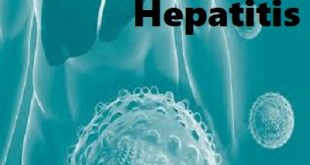
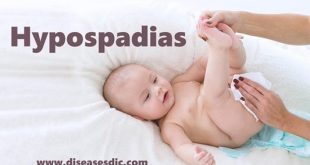
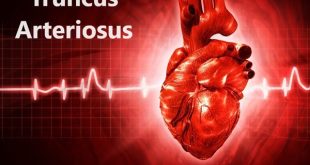

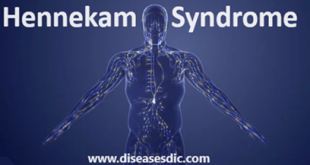
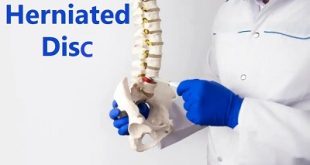
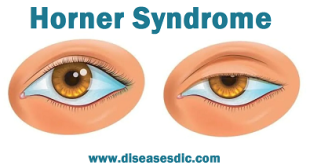

Treatment part should be more elaborative….
Thank you for your feedback.
It’s very good app.helping my mother health condition .
good app so helpfull me and my mother also .
Very impressive and educational!!
Very impressive and educational !!!
That is a really good app for preventing Blood pressure of my mom. thanks to all of behind the creation of this app
Is it advisable for someone @30 to take medication having a blood pressure reading of 120/80 in d morning and 130/90 in the afternoon?
its pre hypertension. better consult doctor to escape from the next stage of hypertension.
I,m very excited about the discovery of health info.
thank you for this app, it really help.
hypertension is a bad disease that kill fast .
it’s a nice app but it’ll be good if you add the dietary management of hypertension to help health professionals in their health education
Thank you for your feed back. We will do your wish in the upcoming post.
I have learnt and gotten a very important message.
I have lent a lot. thanks very much
Very nice
very educative, but the only drug that can lower my bp is exfort but very costly. can they be any alternative cheaper ones
Please consult with a doctor.
educational and motivation
Why there is no information about hypertensive emergence and hypertensive urgence ?
We will soon update in our blog.
please try explain the importance of garlic
Consuming garlic on a daily basis (in food or raw) helps to lower cholesterol levels because of the anti-oxidant properties of Allicin. It is also immensely beneficial to regulate blood pressure and blood sugar levels.
I am a hypertensive patient who takes my medication but my legs are swolen and I have done all relevant tests and realise that I am fine but my legs are still swollen and if I don’t stretch them on a chair but stand or sit without strching they get swollen. I need your advice?
Swollen ankles can also be a side effect of some blood pressure medicines, in particular calcium channel blockers. These medicines make your small blood vessels open wider and, in some people, this can cause more fluid to leak out of the blood vessels into the tissues. This fluid will collect around your ankles or leg. So first check you medicines that cause swelling.
Avery good document though you need to simplify the scientific language and refrain people from seeking self medication as this may lead to serious complications in one’s health
Great work done. Please my one feet is bigger than the other one and when I press it, it denk. could it be symptoms of hypertension. And if so what should I do to cure it . thanks
Please consult a doctor as soon as possible to avoid serious effects in future.
I personal give award to this app as a must for all HEALTHCARE provider. and more than 5star.
The information you provided me is very important.
I am an hypertension patient with the read of 170/80. I had tried eating lifestyle and excises but there is no improvement. can I start using drugs? note: I’m only 25years.
Please consult with a doctor.
how long can one live with hypertension?
Researchers have found that having high blood pressure at the age of fifty is responsible for cutting off an average of five years from both men’s and women’s lives.
what are the causes that teenagers are suffering today from hypertension…is than stress another cause of it
It is might be due to the change in lifestyle. That ends up with stress.
I been with pressure from 2010, mine goes upto 200/ 150 ,I’m in medication but the pressure doesn’t goes down
Practice meditation and follow cardiac exercises daily. Take healthy foods that support tp reduce your blood pressure.
Very nice app,I’m learning so much from it
I love this app,thanks a lot
I like this book,and I thank it.
Thank you so much, this will help me a lot. Please is ginger not good too?
Am 21 years of age . I went for check up and I lent am having an abnormal blood pressure. From there I’ve run like three lab test to figure out the cause(thus ECG,ECO and a scan of ma chest) and all was normal but still has an abnormal blood pressure . I just cant think far……
Because of mental tension and obesity, you may have BP. Please consult a doctor.
Sir, i am Balakrishna age 31 male having a bloodpresure of 190 to 220/120. can you plz give me some suggestion to control bp?
Please consult a doctor for better results.
this is very good app that help me to know my status.what type of medication can I used for this because I do have leg swelling up sometimes?
Thiazide diuretics. Diuretics, sometimes called water pills, are medications that act on your kidneys to help your body eliminate sodium and water, reducing blood volume.
what will happen when the ear for the little kids became deaf?
As initial symptoms, they may not listen to the sounds that originate from their surrounding.
I am doing a research on primary hypertension and want to get more detial information on it and also used your source reference ok.
very interesting app, it helped me get rid of my overweight and obesity which affects my blood pressure reading
thanks so much.
The application is excellent,my thanks and appreciations to those that have initiative improve it.
Thank you for supporting us. Keep reading our app.
I’m having high blood pressure from last 10 days. Its 146/100. Can you suggest any medication for it ?
Please consult a doctor for an appropriate prescription of the drug.
Please Im haven chronic headache with bp.. 170/120mmhg. For the past 7days… What can I take pls.
Please consult a doctor to get treatment for headache.
please does hypertension medication has any side effects
Some common side effects of high blood pressure medicines include:
Cough.
Diarrhea or constipation.
Dizziness or lightheadedness.
Erection problems.
Feeling nervous.
Feeling tired, weak, drowsy, or a lack of energy.
Headache.
Nausea or vomiting.
why high blood pressure is more common in people with dark skin than in people with fair or pale skin?
High blood pressure (hypertension) is not inherently more common in people with dark skin compared to those with fair or pale skin. Hypertension prevalence can vary due to a complex interplay of factors, including genetics, socio-economic status, and lifestyle. Disparities in hypertension rates among different racial and ethnic groups may exist, influenced by various factors such as access to healthcare. Addressing hypertension as a public health concern and promoting awareness, prevention, and management strategies is crucial across all populations, irrespective of skin color or ethnicity. Regular blood pressure monitoring and a healthy lifestyle are essential for maintaining cardiovascular health.
What combination therapy is good for hypertension treatment in African men that wouldn’t cause erectile dysfunction